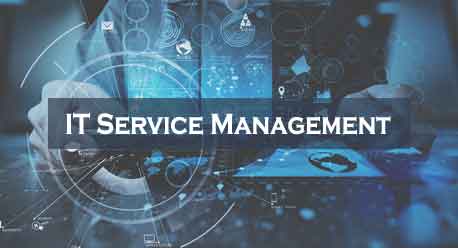IT service management mainly deals with investigation and resolution of issues or problems that is spread over a quite a geographically distributed user base. It also involves a series of complex business rules based on SLAs (Service Level Agreements) and other related guidelines. IT service management becomes even more complex when diverse activities from several departments requires attention, for instance when service, engineering, finance and legal requirements need to be accounted for. It can further become even more difficult and intricate when such diverse departments use disconnected information silos which can adversely affect IT service owing to their complete lack of data integrity and cross functional collaboration. Even as user-reported problems are resolved, it is important that these issues are stored into a data base of sorts for future reference.
Challenges of IT Service Management

Most enterprises face different IT service management challenges some of them include:
Correctly identifying and executing all aspects of your complicated automated business process tool. Informing users as and when the problem is resolved-this should be ideally done on a SLA based timeline.
Ensuring the problem issue has been escalated and brought to the notice of everyone if it delays the process even further. Having an integrated IT tools ecosystem that efficiently offers global access. Easy facilitation of knowledge base management
Solving the IT Service Management Problems
Enterprises want to have a solution that can easily enable issues of definition and implementation of complex automated business processes. Additionally they also require prior process versions to be preserved in the tool. This means that traceability in IT service management solutions or tools is an absolute necessity. Also enterprises want to reduce data duplication and the inconsistencies that come with data integrity problems. Getting an ITSM solution that ensures complete data integrity can easily solve the IT service management issues.

Enterprises should opt for such an ITSM solution that has a built in web-based interface that allows easy event-based, two-way real-time communication between disparate tools. This means that departments can collaborate seamlessly ensuring that there is an easy way to leverage past problem resolution efforts as well as swifter problem resolution lifecycle. Such an ITSM solution would allow for the creation of a consolidated and linked repository of customer information for easy access and reference. The ITSM solution must inherently possess multi-entity functional capabilities yet it must also be easy to implement and change. Such a solution would be immensely beneficial to any corporate or government institution.

